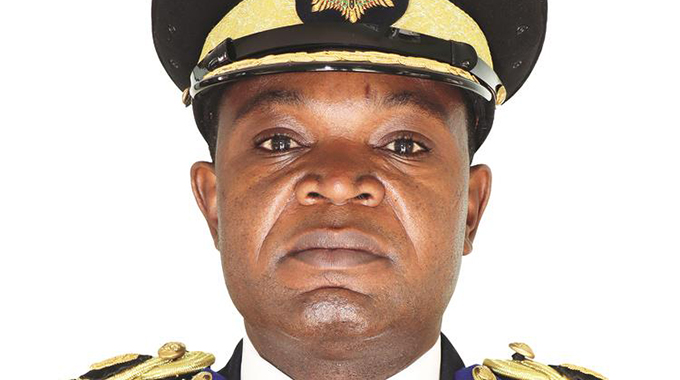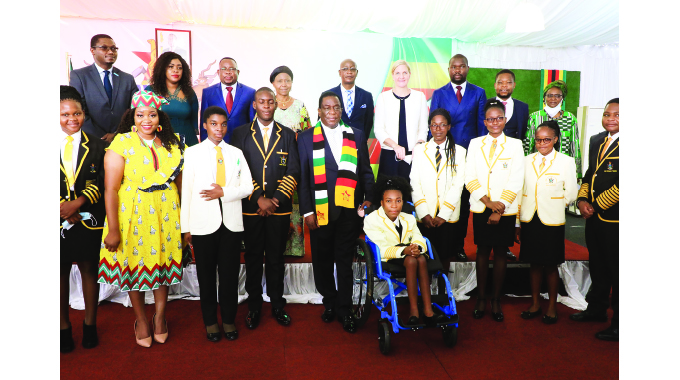‘History cannot be wished away’

Elliot Ziwira recently in Dar es Salaam, Tanzania
“We, the people of Tanganyika, would like to light a candle and put it on top of Mt Kilimanjaro, which would shine beyond our borders giving hope where there was despair, love where there was hate and dignity where before there was only humiliation. . .
“We cannot, unlike other countries, send rockets to the moon. But we can send rockets of love and hope to all our fellow humans wherever they may be.”
These inspirational and selfless words immortalised by the historian David Martin in an obituary on one of Africa’s illustrious sons, Mwalimu Julius Kambarage Nyerere, published in The Herald issue of October 15, 1999, were captured at the Legislative Assembly in October 1959, two years before his death.
This wisdom lit up the atmosphere during Information, Publicity and Broadcasting Services Minister Monica Mutsvangwa’s three-day working visit in Tanzania, in collaboration with Tanzania’s Ministry of Culture, Arts and Sports, which ended on Sunday, as Mwalimu Nyerere’s legacy endured.
The visit saw Minister Mutsvangwa, accompanied by Information, Publicity and Broadcasting Services permanent secretary, Mr Nick Mangwana, meeting Tanzania’s Culture, Arts and Sports Minister, Mr Innocent Bashungwa, at his offices in Magufuli City, Dodoma, and regional commissioner for Dodoma, Mr Antony Mtaka, among other officials in Dodoma, Morogoro, Bagamoyo and Dar es Salaam.
Minister Mutsvangwa paid tribute to the people of Tanzania for their contribution to the liberation of Zimbabwe.
“We appreciate Tanzania’s contribution to the liberation of our nation, our visit to Tanzania is to continue to strengthen relations between our two nations in relation to the areas used by Zimbabwe’s freedom fighters,” she said.
“The aim of our visit is to prepare a special documentary that will help educate our people, preserving our history for our future generations.”
Mr Bashungwa thanked Minister Mutsvangwa and the Government of Zimbabwe for embarking on the journey to retrace the footprints of the freedom fighters, who sacrificed for the liberation of the African people, saying the preservation of history is not an easy task.
“Our country took responsibility of preparing areas for Southern African countries to prepare for their independence, including Zimbabwe.
“This documentary will help to preserve our history, so that it does not disappear; including the testimonies of freedom fighters, who are still alive and provide education for our current generation and future generations,” said Mr Bashungwa.
Such efforts, he said, would also help Tanzanians in preserving their own history as the two sister countries share collective memories.
Full story on www.herald.co.zw
He added that Tanzania, led by President Samia Suluhu Hassan, remains committed to the preservation of the rich history of African liberation movements in the country, with the African Liberation Programme, under the Ministry of Culture, Arts and Sports having a budget passed by Parliament to identify, preserve and promote the liberation heritage archives of Tanzania, especially those relating to African collective heritage.
Training camps used by Zimbabwean freedom fighters, which hosted both men and women were; Nachingwea in the Lindi region (Farm 17), Mgagao in Iringa, Kongwa in Dodoma, Chunya in Mbeya, Multinational Liberation Movement Medical Training Centre in Morogoro, Bagamoyo in Kaole, and Dar es Salaam at the house where national hero and late former President Robert Mugabe once lived.
Multinational Liberation Movement Medical Training Centre former deputy principal and chief academic, Dr Salem Ibrahim Mwandu (76), said the purpose of the centre since its establishment in 1976, was to train freedom fighters from across Southern Africa.
“The leaders of these countries, including Comrade (Robert) Mugabe, were visiting the medical students, who were studying here and meeting with me to further their students’ development,” said Dr Mwandu.
“This step greatly strengthened my relationship with Comrade Mugabe, and he invited me and my wife in 1982 to celebrate the second independence anniversary of Zimbabwe. I know Rufaro Stadium and Munhumutapa.”
Ambassador Ami Mpungwe, a guru on liberation movements in Africa, said without roots no food exists, hence, Africans should tap into their rich history epitomised by Pan-African liberation icons like Mwalimu Nyerere, Robert Mugabe, Samora Machel, Sam Nujoma and Kenneth Kaunda, and preserve it for posterity.
He said it was the spirit of selflessness and sacrifice, cutting across boundaries, which Mwalimu Nyerere instilled in Tanzanians that drove the machinery of the struggle for freedom against colonial repression on the African continent in spite of the limited resources at their disposal.
Ambassador Mpungwe said owing to the ideological grounding that he got as a young man, and his work as a diplomat in other African countries, he could not call himself a Tanzanian, but simply an African citizen.
It may be 22 years now since Mwalimu Nyerere, the teacher, died on October 14, 1999, but his legacy of love, unity and hope lives on.
A selfless doyen of the struggle against colonial hegemony and subjugation, Mwalimu Nyerere believed that shared hope was the only panacea to the total liberation of the peoples of Africa.
This is why on October 14 every year SADC member states, Zimbabwe among them, join the rest of the continent and beyond in celebrating Mwalimu Nyerere’s self-sacrificing contribution to the total liberation of the oppressed black people.
Even though Julius Nyerere Day is commemorated annually in Tanzania, the anniversary goes beyond the borders of Tanzania, as Southern Africa owed a lot to the freedom fighter, who was instrumental in the fight against imperialism, colonialism and racism on the African continent owing to supremacist inclinations of “othering”, inspired by colonial godfathers like Cecil John Rhodes.
Mwalimu Nyerere believed in the warmth that comes with togetherness, shared aspirations and collective vision. He, therefore, laid a firm foundation that would sustain unity, peace, freedom and socio-economic prosperity on the continent.
Tanzania and Zimbabwe share a rich history and heritage, Minister Mutsvangwa said.
Such history should be preserved for future generations, to inform them about their identity, and inculcate a sense of patriotism as well as oneness in them.
Indeed, until lions learn to write their own stories, the story of the hunt will always glorify the hunter, as fountains of African wisdom say, for history as a stubborn and necessary “evil”, can neither be wished away nor recreated.
It can only be preserved for posterity.
The African, therefore, should begin by loving himself, and expressing it articulately that he knows how much he is worth, for he did not learn of history or culture for the first time from Europeans, as Chinua Achebe and Vambe would put it.
“We should write our own stories, rather than wait for outsiders to do it for us,” Minister Mutsvangwa said.
He knows where he is going, who knows where he is coming from, she underscored.
There is need, therefore, to go beyond history as a silent past, but as a source of agency that speaks to the present and the future.
Many young people in both Zimbabwe and Tanzania are unaware of the rich vein that the two nations share.
Hence, the objective of the visit to Tanzania was to document how freedom fighters left Zimbabwe, known as Rhodesia then, for Tanzania using the three main routes open to them; either via Botswana, Zambia, or Mozambique; how they were trained and deployed to the Front through interaction of stories and voices.
Minister Mutsvangwa bemoaned the lack of documentation of the liberation struggle as many cadres were taking their stories to the grave.
She said freedom fighters, including those who were trained in Mozambique, should ensure that the rich history of the country’s liberation struggle was not lost since many of them are now old.










Comments